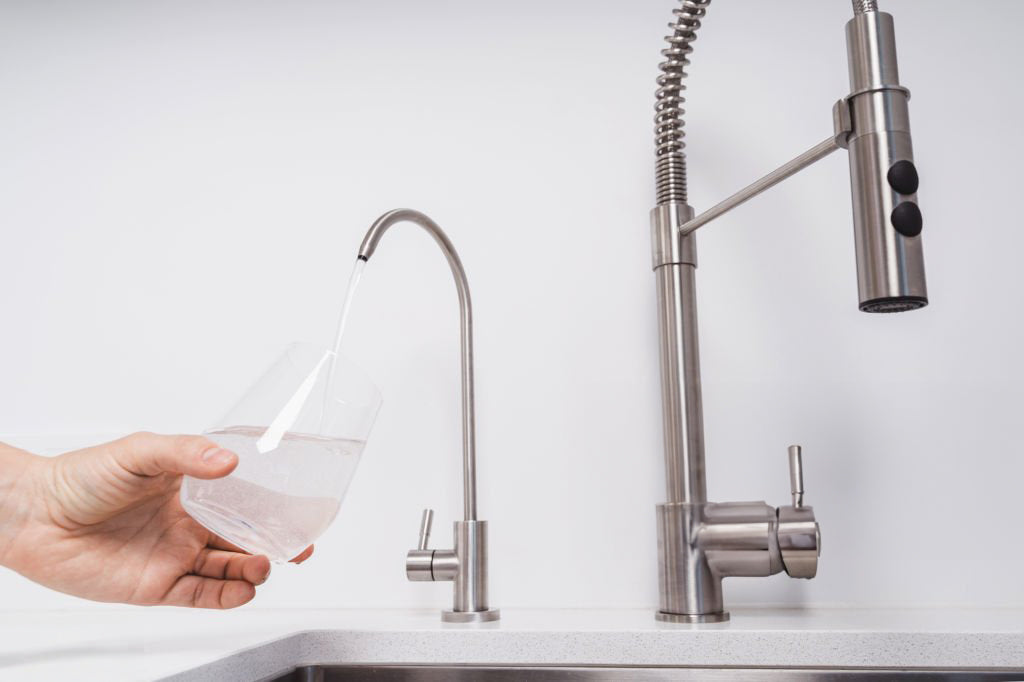Reverse Osmosis vs. Alkaline Water
Understanding the Basics
Before diving into the comparison, let's clarify what reverse osmosis and alkaline water are.
- Reverse osmosis (RO): This is a filtration process that uses pressure to force water through a semipermeable membrane, leaving behind contaminants. RO water is often considered pure and free from impurities like minerals, bacteria, and viruses.
- Alkaline water: This is water with a pH level higher than 7. It's often associated with health benefits, such as improved digestion and reduced acidity.
The Benefits and Drawbacks of Reverse Osmosis Water
Reverse osmosis water offers several benefits:
- Purity: It's highly effective at removing contaminants, including heavy metals, pesticides, and bacteria.
- Taste: Many people find the taste of RO water to be cleaner and fresher than tap water.
- Health benefits: Some studies suggest that RO water can be beneficial for people with certain health conditions, such as kidney disease or heart failure.
However, RO water also has some drawbacks:
- Mineral removal: The process removes minerals like calcium and magnesium, which are essential for overall health.
- Environmental impact: The energy consumption required for RO filtration can be significant, especially in areas with limited water resources.
- Cost: RO systems can be expensive to purchase and maintain.
The Benefits and Drawbacks of Alkaline Water
Alkaline water has gained popularity due to its purported health benefits:
- Improved digestion: Some studies suggest that alkaline water can help neutralize stomach acid and improve digestion.
- Reduced acidity: Alkaline water may help reduce the acidity of the body, which is believed to be beneficial for overall health.
- Antioxidant properties: Some alkaline water brands claim that their products contain antioxidants that can help protect against cell damage.
However, the scientific evidence supporting these claims is mixed. While some studies have shown positive results, others have been inconclusive. Additionally, there are concerns about the potential risks of consuming excessive amounts of alkaline water.
Choosing the Right Water for You
The best choice between reverse osmosis and alkaline water depends on your individual needs and preferences. Here are some factors to consider:
- Water quality: If your tap water is contaminated with harmful substances, reverse osmosis can be a good option.
- Health concerns: If you have specific health concerns, consult with a healthcare professional to determine the best type of water for you.
- Taste preferences: If you prefer the taste of pure water, reverse osmosis may be a good choice.
- Environmental impact: If you're concerned about the environment, consider the energy consumption and water waste associated with different filtration methods.
- Cost: Factor in the initial cost of the system and the ongoing maintenance expenses.
Additional Considerations
- Mineral content: If you're concerned about mineral deficiency, you may want to choose a water source that provides adequate amounts of essential minerals.
- pH level: While alkaline water is often touted for its health benefits, it's important to note that the optimal pH level for drinking water is still debated.
- Lifestyle: Consider your lifestyle and habits when choosing a water filtration system. For example, if you travel frequently, a portable water filter may be a good option.
Conclusion
Both reverse osmosis and alkaline water have their own advantages and disadvantages. The best choice for you will depend on your specific needs and preferences. It's important to do your research and consider all factors before making a decision.
Additional Resources
- Healthline: https://www.healthline.com/nutrition/what-is-the-healthiest-water-to-drink
- WebMD: https://americanhomewater.com/6-key-benefits-of-reverse-osmosis-water/
- Mayo Clinic: https://newsnetwork.mayoclinic.org/discussion/mayo-clinic-q-and-a-for-most-people-drinking-plain-water-is-the-best-way-to-stay-hydrated/
By carefully considering these factors and consulting with a healthcare professional if necessary, you can make an informed decision about the best type of water for your needs.

